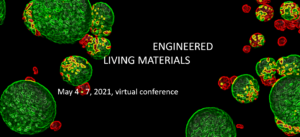Events
Virtual LSC Talk: Algorithms and patients: How we used AI to accelerate the treatment of a rare disease
Dr. Tiago Lopes, an experienced research scientist specializing in bioinformatics, artificial intelligence, and data-driven healthcare research. He is the Founder and CEO of Nezu Biotech GmbH, a company that offers AI and bioinformatics services to life science institutions, with a mission to transform complex data into meaningful knowledge.
In addition, Dr. Lopes currently works as a Research Scientist at Heidelberg University, where he analyzes healthcare data – from patient cohorts to molecular biology datasets – and turns raw data into actionable insights.
In his upcoming webinar on May 7, 11:00 AM he will talk about:‘Algorithms and patients: How we used AI to accelerate the treatment of a rare disease.‘
To all interested scientists who are not a member of the LSC, please register till May 6 here.
Invitation – Short Retreat
Monday, February 24th 2025, Time: 4 to 6 PM, INM
Program:
5min Progress Reports on LifeMat1 and LifeMat2 Projects
Discussion
Poster Session with finger food
LSC Get Together
Monday, September 23rd 2024, Time: 4 to 6 PM, INM – Old Library
Program:
10 min introduction to LifeMat2: scope and organization
2-min (1 slide) presentation of LifeMat-2 participants
Poster session with finger food
LSC talk: Publishing in Nature journals
05. März 2024, 11.00 AM, Leibniz Saal
Dr. Bart Verberck
Springer Nature Group
Lecture abstract:
After a brief introduction to Springer Nature and the Nature Portfolio — the brand behind the ‘Nature journals’ — I will provide an overview of the inner workings of a Nature research journal, with Nature Physics as an example. I will focus on the editorial process at a Nature research journal, explain the roles of editors and discuss editorial criteria for publication. Along the way, I will give some advice on how to present research. I will also reflect on the ever-evolving role of scientific publishers and, particularly, on the ongoing transition to fully open access publishing.
Speaker bio:
Bart obtained his PhD in physics from the University of Antwerp with a dissertation on fullerene-based materials. He joined Nature Physics in 2013 after post-doctoral stays at the Research Centre Jülich and the Universities of Antwerp, Paris-Sud and Würzburg, during which he worked mainly on structure-property relationships in carbon materials. At Nature Physics, Bart originally handled manuscripts on topics from condensed-matter physics, fluid dynamics and plasma physics. He also launched a column called ‘Measure for Measure’ on aspects of metrology. In 2017, Bart moved to Berlin to become Regional Executive Editor for the newly established Nature Portfolio office in Germany, which he helped develop as an editorial and publishing hub with a focus on local outreach. Since 2021, he combines that capacity with the role of Senior Consulting Editor at Nature Physics, where he covers soft-condensed-matter physics and has a consulting role for Nature Communications.
https://www.physik.uni-wuerzburg.de/tp4/people/former-members/dr-bart-verberck/
Workshop Engineered Living Materials
16th January 2024, Aula of the Saarland University (Saarbrücken Campus A3 3)
15:30-16:30 Life Cycle Assessment for New Technologies
Prof. Dr. Matthias Finkbeiner, Technische Universität Berlin
Managing Director Institute of Environmental Technology, Chair of Sustainable Engineering
16:30-17:00 Ontologies for Materials Science: an introduction for the ELM community
Dr. Angelika Gedsun, IMTEK Freiburg
NFDI MatWerk
17:00-18:30 Get together
Attendance to the workshop requires registration here:
LSC-Talk
University of California, Irvine, CA, USA
Friday, November 10, 2023, 14:00
INM, Campus D2 2, Leibniz-Saal
Host: Dr. Shrikrishnan Sankaran
“Cephalopod-Inspired Bioelectronic Control Over Cellular Communication”
The ability of cells to efficiently communicate over organism-scale distances and across difficult-to-surmount biological barriers is one of the most important fundamental phenomena in biology. Within this context, a large body of work has demonstrated that intercellular communication is often mediated by cell-produced particles called extracellular vesicles (EVs). Despite the importance of EVs in various biological processes, there have been relatively few reports of successfully hijacking and artificially controlling EV-based cellular signaling pathways and then subsequently using such communication mechanisms to produce desirable outcomes in complex biological systems. Within this context, we have developed a powerful bioelectronic methodology that harnesses EV-mediated intercellular signaling for the on-demand regulation of cell fate from a distance. In particular, our approach employs mild electrical stimuli for actuating, regulating, and even reversibly cycling the production of EV populations with adjustable concentrations, size distributions, and protein contents from genetically engineered source cells. Moreover, our strategy allows for the directed electrical loading of biomolecular signaling cargo into designer EVs and for the subsequent electrical regulation of primary recipient cell differentiation by means of such EVs in situ. Together, the reported discoveries establish an exciting platform for fundamentally understanding EV-based cell-to-cell signaling mechanisms and may ultimately enable the development of transformative biomedical engineering technologies.
LSC-Talk
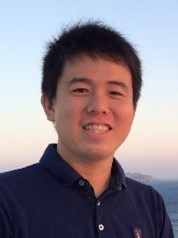
Prof. Dr. Ryosuke Kojima
Graduate School of Medicine, University of Tokyo
Thursday, October 12, 2023, 15:00
INM, Campus D2 2, Alte Bibliothek
Host: Prof. Dr. Wilfried Weber
“Engineering extracellular vesicles for their delivery application and comprehensive biological understanding”
Extracellular vesicles (EVs), including exosomes, serve as important information transmitters between cells in various biological contexts. In addition, due to their high biocompatibility and the ability to permeate through the blood-brain barrier, EVs are attracting attention as next-generation drug careers. Therefore, technologies that enable the understanding and manipulation of EV properties are important from the viewpoint of both basic biology and biotechnology.
In this presentation, I will introduce our studies that enable the rational engineering and comprehensive understanding of EVs through synthetic biology approaches:
- Engineering EVs for future therapies: We have developed synthetic biology devices that enable “Designer EVs” with desired functions, allowing for efficient delivery of therapeutic RNA to remote diseased cells. (Nat. Commun. 2018, 9, 1305)
- Development of a novel method for comprehensive analysis of EV release regulators: We have created EVs barcoded with CRISPR gRNA, which enables comprehensive, subpopulation-specific analysis of their biogenesis/release regulators in a massively parallel manner (To be submitted very soon).
LSC Summer School on Engineered Living Materials 2023

The field of Living Therapeutic Materials combines synthetic biology, materials science and medicine to develop self-regulated and self-replenishing drug delivery systems for long-term and personalized administration of biopharmaceuticals. This Summer School will provide training to early career scientists working in this field, covering the following four broad topics – (i) Programming the living, (ii) Microbe-material interactions, (iii) Therapeutic application scenarios and (iv) Biosafety. The program will include lecturers from leading scientists in the field. The participants will also share their achievements in poster sessions.
The Summer School is organized within the Leibniz ScienceCampus (LSC) Living Therapeutic Materials (www.lsclifemat.com) and is open to students of the LSC and also to students from other groups working in this topic. Don’t miss out on this opportunity and apply to Shrikrishnan.sankaran@leibniz-inm.de with an email confirming that you will join.
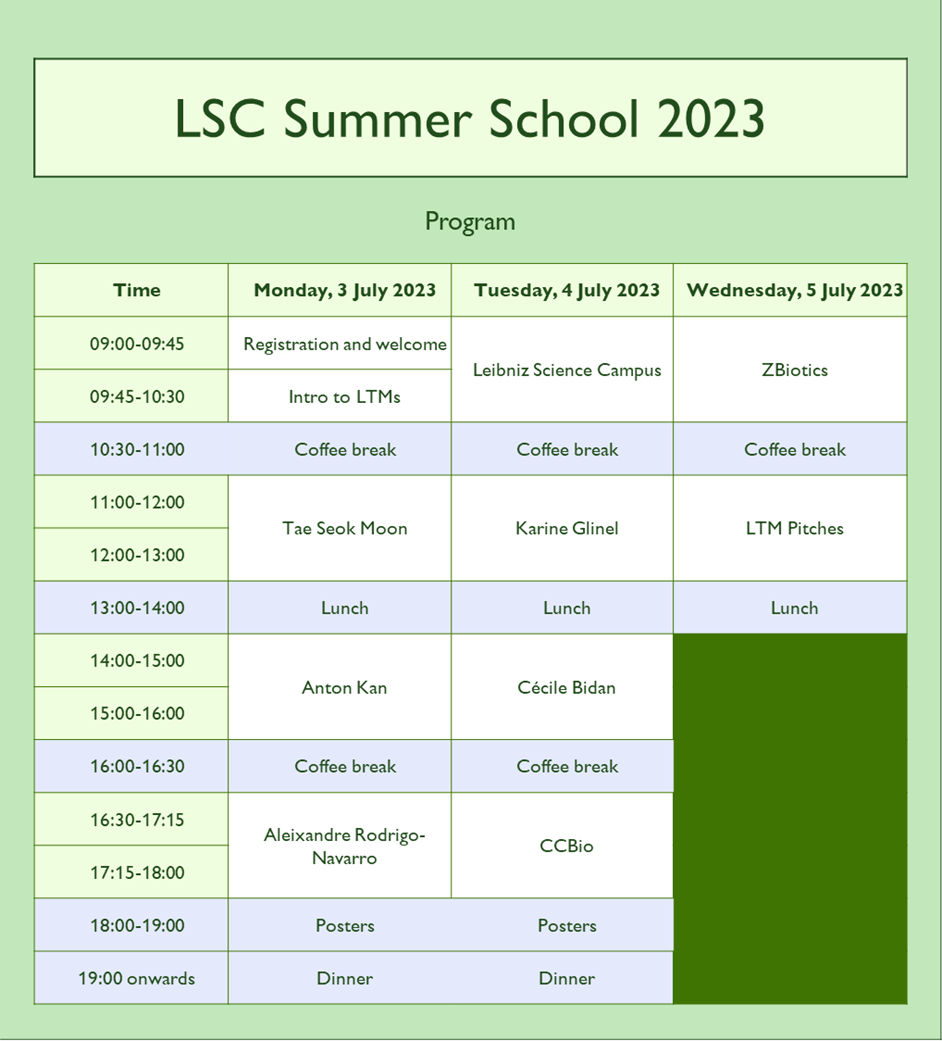
Venue:
Europäische Akademie Otzenhausen gGmbH
Europahausstraße 35
66620 Nonnweiler
Deutschland
Lectures:
Tae Seok Moon, Washington University, USA
- Systems and synthetic biology: constructing smart and programmable microbes to address global problems
Anton Igorevich Kan, ETH Zurich, Switzerland
- A platform to engineer probiotic coli
- Light-based printing of responsive living materials
Aleixandre Rodrigo-Navarro, University of Glasgow, UK
- Engineered living materials to control stem cell fate and its applications in tissue engineering
Leibniz Science Campus – Shrikrishnan Sankaran, Aránzazu del Campo, Sara Trujillo Munoz, Leibniz INM, Germany
- Engineering therapeutic bacteria, encapsulating them as LTMs and unravelling their host responses
Karine Glinel, UCLouvaine, France
- Bacterial encapsulation for therapeutic applications
- Macromolecular materials to control bacterial and mammalian cell processes
Cécile Bidan, Max Planck Institute of Colloids and Interfaces, Germany
- Methods for biofilm material characterization at different scales
- Structure – live microscopy, wrinkling analysis, stainings + cross sections, FIB-SEM on mineralized biofilms
- Properties- particle tracking, (rheology), microindentation, osmotic sensors
CCBio, UK
- The Synthetic biology start-up space and their approach towards engineering microbiome therapies
Zack Abbott, ZBiotics, USA
- Beyond Containment: Designing Safe Genetically Engineered Microbes (GEMs) for Coexistence
- Building and commercializing the world’s first Genetically engineered probiotic
LSC Summer School on Engineered Living Materials 2023
The Leibniz Science Campus Living Therapeutic Materials is organizing a LSC Summer School on Engineered Living Materials taking place from 3rd of July to 5th of July 2023 in Saarbruecken.
Please save the date.
More details and a program will follow soon.
Colloquia of the LSC “Living Therapeutic Materials”
Prof. Dr. Tae Seok Moon
Systems and Synthetic Biology: Constructing smart and programmable Microbes to adress Global Problems
Washington University, St. Louis, USA
3rd of April 2023
Hosts: Prof. Dr. Wilfried Weber, Dr. Shrikrishnan Sankaran
Colloquia of the LSC “Living Therapeutic Materials”
Dr. Morgan Delarue
Cell Growth under Mechanical Pressure
Universite Toulouse, team MILE, LAAS-CNRS, France
31st of January 2023
Host: Prof. Dr. Aranzazu del Campo
Meeting of the Leibniz Science Campus “Living Therapeutic Materials”
Lecture series of the LSC “Living Therapeutic Materials”
Prof. Dr. Karin Jacobs / Intermolecular and adhesive forces among bacteria and materials
Lecture series of the LSC “Living Therapeutic Materials”
Prof. Dr. Olga Kalinina / AI methods for predicting protein structure and drug interactions
Lecture series of the LSC “Living Therapeutic Materials”
Prof. Dr. Robert Bals / New therapies for diseases of the lung: Covid-19, COPD, asthma, pneumonia
Lecture series of the LSC “Living Therapeutic Materials”
Prof. Dr. Matthias Laschke / In vivo analysis of implanted biomaterials, 02.06.2022
Lecture series of the LSC “Living Therapeutic Materials”
Dr. Stefan Lohse / The antibacterial activities of neutrophils
Lecture series of the LSC “Living Therapeutic Materials”
Nachwuchsakademie Engineered Living Materials
The Nachwuchsakademie “Engineered Living Materials” is a DFG workshop for early career investigators in Engineered Living Materials funded by the Deutsche Forschungsgemeinschaft (DFG, German Research Foundation). The workshop will take place from June 17 to 21, 2022.
Engineered Living Materials Conference 2022
Lecture series of the LSC “Living Therapeutic Materials”
Prof. Dr. Tobias Kraus / Transport of molecules and heat in living materials
Lecture series of the LSC “Living Therapeutic Materials”
Prof. Dr. Aranzazu del Campo / Materials and processing technologies to fabricate ELMs
Prime minister Hans: Materials research important to push forward innovations for structural change in Saarland
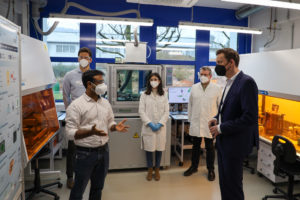
During his visit to the INM – Leibniz Institute for New Materials, Saarland Prime Minister Tobias Hans informed himself about a new research project on the subject of lithium recycling, which is to be funded by the state from EU fundings. In addition, Prime Minister Hans visited the Leibniz Science Campus and spoke with the management about the expansion development of the institute financed by the federal and state governments.
Lecture series of the LSC “Living Therapeutic Materials”
Dr. Shrikrishnan Sankaran / Genetic sensors and switches – Making living materials smart
Lecture series of the LSC “Living Therapeutic Materials”
Prof. Dr. Christoph Wittmann / Metabolism – making living materials alive
Lecture series of the LSC “Living Therapeutic Materials”
Dr. Marta Rodriguez / Discovering new natural drugs and biosynthetic gene clusters through heterologous expression
Lecture series of the LSC “Living Therapeutic Materials”
Dr. Julian Hegemann / Microbiota-protective features of commensal bacteria producing RiPP natural products
Virtual Meeting of the Steering Committee of the LSC “Living Therapeutic Materials”
An agenda for the Steering Committee Meeting will be send to the attendees shortly.
Prizes of the Lifemat-at-a-glance Short Video Contest of the LSC “Living Therapeutic Materials”
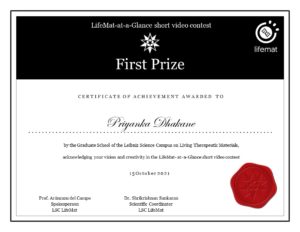
On October 15th, 2021, the prizes for the winners of the Lifemat-at-a-glance Short Video Contest of the LSC were awarded
during the first face-to-face meeting of the Leibniz Science Campus Living Therapeutic Materials.
The prize honored scientific precision, transparency and the quality of the presentation.
A first, second and third prize was awarded.
The winners were:
First Prize: Priyanka Dhakane, INM
The prize came with €300 in prize money.
Second prize: Carsten Seyfert, Selina Deckarm and Timo Risch, all HIPS
The award was endowed with €200 prize money.
Third Prize: Shardul Bhusari, INM
This prize came with €100 prize money.
Meeting of the PIs and groups of the LSC “Living Therapeutic Materials”
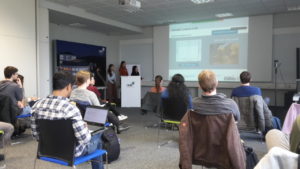
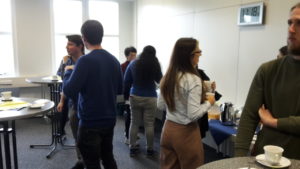
Agenda for the PIs and groups Meeting:
Engineered Living Materials Conference 2021
The Leibniz Science Campus Living Therapeutic Materials is organizing the conference Engineered Living Materials 2021 from 4th of May to 7st of May.
Virtual Meeting of the Steering Committee of the LSC “Living Therapeutic Materials”
An agenda for the Steering Committee Meeting will be send to the attendees shortly.
Virtual Scientific Meeting of the groups of the LSC “Living Therapeutic Materials”
The meeting will contain introductions of the groups, presentations of proposed projects and discussions of future activities.
Virtual Mini-Symposium: “Bioprocessed and Bioinspired Materials”
The INM is organizing a virtual mini-symposium on “Bioprocessed and Bioinspired Materials”. In three lectures, international scientists will examine the topic from their respective perspectives.
Speakers:
1 –3D Printing of Bioinspired Materials
Prof. André R. Studart, ETH Zürich, Switzerland
Abstract: 201021 Abstract Studart
2 – Synthetic Biological Strategies to Design Functional Materials
Prof. Wilfried Weber, University of Freiburg, Germany
Abstract: 201022 Abstract Weber
3 – Sustainable Materials Potentials through Circular Economy – Why We Need Them Now in Mitigating Climate Change!
Prof. Amar Mohanty, University of Guelph, Canada


